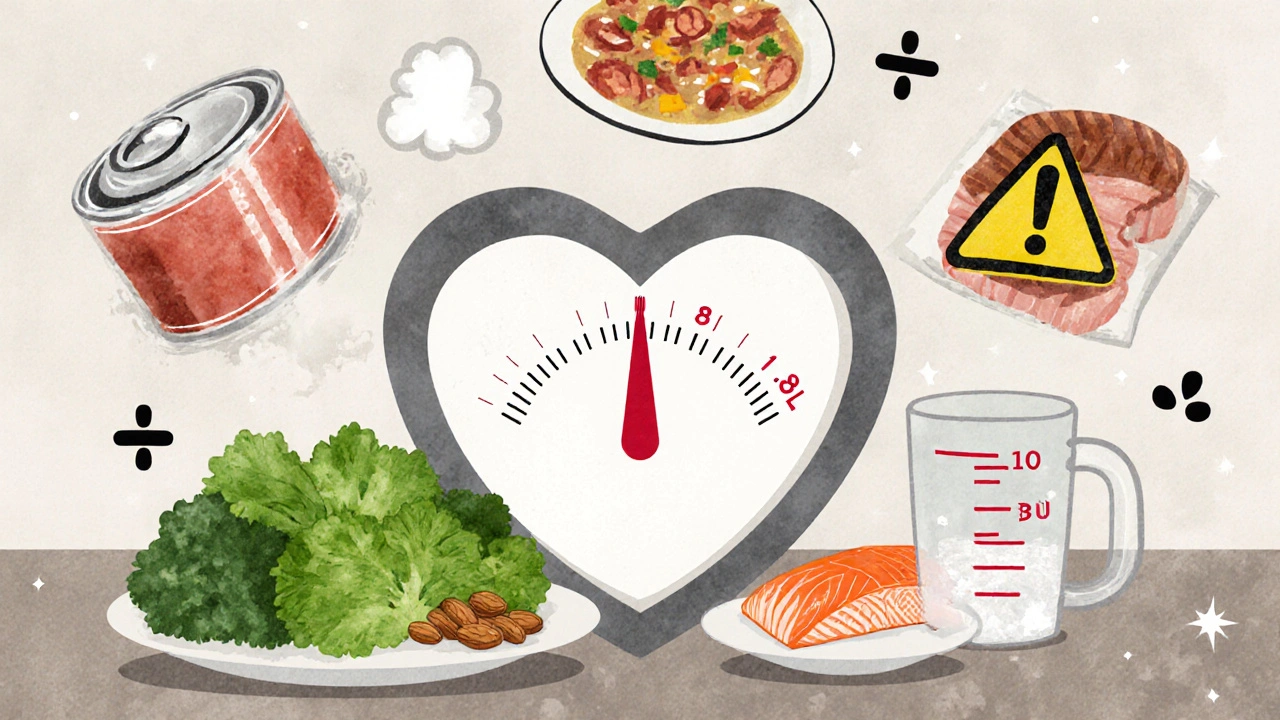Congestive Heart Failure Diet: What to Eat and Avoid for Better Heart Health
When you have congestive heart failure, a condition where the heart can’t pump blood efficiently, leading to fluid buildup in the lungs and limbs. It’s not just about pills—it’s about what’s on your plate. A congestive heart failure diet isn’t a quick fix. It’s a daily tool that helps your heart work less hard, cuts down on swelling, and keeps you feeling better longer.
One of the biggest rules? Watch your sodium, salt, which makes your body hold onto water and forces your heart to pump harder. Most people with heart failure need under 2,000 mg a day—that’s less than one teaspoon of salt. Processed foods, canned soups, frozen meals, and even bread can sneak in way more than you think. Instead, reach for fresh vegetables, lean meats, and plain grains. Cooking at home gives you control. No more guessing.
Then there’s fluid restriction, a common but often misunderstood part of managing heart failure. Your doctor might tell you to limit drinks to 1.5 to 2 liters a day. That includes water, coffee, soup, ice cream—even foods that melt into liquid. Why? Because too much fluid backs up in your lungs and legs, making you breathless and swollen. It’s not about being thirsty—it’s about protecting your heart from extra work.
Don’t forget potassium and magnesium, minerals your heart needs to beat regularly, especially if you’re on diuretics. Diuretics help flush out fluid, but they can also wash away these important minerals. Bananas, spinach, avocados, and nuts are good sources—but talk to your doctor before adding supplements. Too much potassium can be dangerous, especially with certain heart meds.
You might also hear about weight monitoring, a simple daily habit that catches fluid buildup before it becomes a crisis. Step on the scale every morning, same time, same clothes. A sudden gain of 2 pounds in a day or 5 in a week? That’s your body screaming for help. Call your doctor. It could mean you need a tweak in your meds or diet before you end up in the hospital.
This isn’t about perfection. It’s about progress. One less canned meal. One less salty snack. One more fresh apple. These small choices add up. People who stick with the diet don’t just live longer—they live better. They walk farther, sleep deeper, and feel less tired. The food you eat doesn’t cure heart failure, but it gives your heart a fighting chance.
Below, you’ll find real-world advice from people who’ve been there—how they cut sodium without giving up flavor, how they track fluids without obsessing, and which foods actually helped them feel stronger. No guesswork. No fluff. Just what works.

